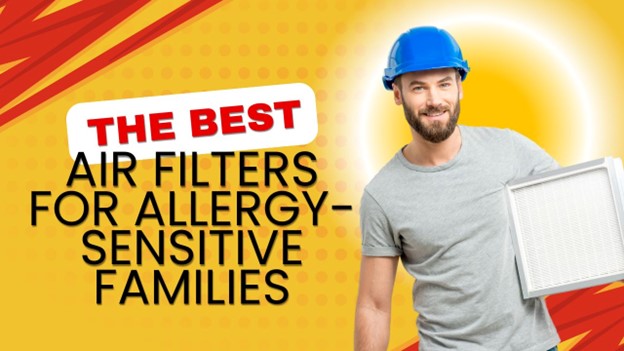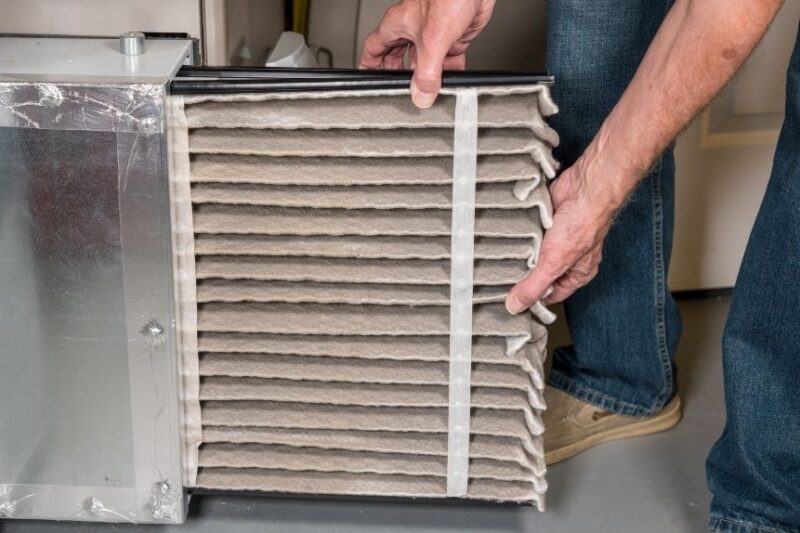
The Best Air Filters for Allergy-Sensitive Families
Choosing the correct air filter is essential to keeping your house healthy, especially for families that have allergy sufferers. Having an effective air filter may significantly improve indoor air quality and lessen allergy symptoms, especially with the rising incidence of airborne allergens like dust, pollen, and pet dander. In this article, we’ll examine the top air filters for families with allergies, emphasizing the essential characteristics to consider, such as the significance of the 20x30x1 air filter size and knowing the effects of a dirty air filter.
Understanding Air Filters
This ensures that the air that is circulating through the home is fresh and free from impurities and this is made possible by having air filters that filter off all the airborne particles that are around. A term coined to measure efficiency in gathering an air filter is the MERV or Maximum Effectiveness Monitoring Value. An element’s ability to capture minute particles is directly proportional to its MERV rating. To properly capture allergens, families with sensitive allergies must select filters with a high MERV rating.
Why the Air Filter Is Important
Because the filter must precisely fit into your HVAC system to work, its size is quite important. The air filter may be a wise option for the following reasons:
● Standard Size: The filter has the size, which is a universal size of the filter and very easy for a replacement. This can fit many residential HVAC systems, and therefore you will not have to look for a size that will best fit the system.
● Effective Filtration: The MERV rating of air filter indicates its efficiency, and they can do a good job in trapping dust, pollen, and other allergens. MERV 11 or MERV 13 is especially effective for the allergy season, though any filter with a higher MERV rating is more effective.
● Ease of Installation: The air filter is ideally built to fit into most filter brands and slots, and the tight seal on the filter slot ensures that there are no congested pathways and dead spaces for allergens to accumulate on.
Characteristics of Air Filters to Consider
The following characteristics should be taken into account when choosing an air filter for families with allergies:
● High MERV Rating: Choose filters with the MERV standard of at least 11 for your business building. These filters are very efficient for eliminating different particles from the air, including dust, pollen, and mold spores, with the ability to filter particles as small as 1 micron. These filters are even more advanced, known as the MERV 13 filters, and they can remove even more particles, for instance, bacteria and smoke.
● HEPA Filters: High-Efficiency Particulate Air (HEPA) filters are the advanced filters that have the efficiency of trapping 99%. 7µm and smaller capture 97% of particles as small as 0.3 microns. Whereas HEPA can be incorporated in stand-alone air purifiers, some HVAC systems can accommodate HEPA filters or filters of similar quality.
● Material and Construction: Choose filters whose materials are pleated paper or man- made fibers because they are of better quality. These materials improve the capacity of the filter to capture the allergens while at the same time ensuring that enough air is let through.
● Longevity: Bear in mind the longevity of the filter. It is suggested that some filters should be replaced after 1-3 months, whereas some other filters may last up to 6 months. Part change of these filters is therefore necessary in order to sustain the quality of air inside the setup.
Effects of a Dirty Air Filter
The performance of the HVAC system as a whole and indoor air quality can both be strongly impacted by a filthy air filter. This is the impact a filthy or clogged filter may have on your house:
● Reduced Air Flow: Dust and debris collect over time and block the AC filter, and ultimately, the airflow through the HVAC system becomes regulated. It results in poor efficiency and high energy usage because the system has to struggle to move air around the building.
● Increased Allergens: An example of a filter is when a filter becomes muddy or filled with dirt, then it has the tendency of capturing allergens in a substandard way. This implies that dust, pollens, and other particles that may cause allergies can pass through the filter and move around within the house, thus being very bad news to allergy
patients.
● System Damage: If you continue to operate your HVAC system with a dirty air filter, then it puts a ton of pressure on your system and can lead to potential damage or even some wear and tear to your system. This can make expensive repairs or replacements become the norm in the home.
● Poor Air Quality: The primary use of an air filter is to maintain good quality of air inside the building. This is not well done by a dirty filter and so leads to poor air quality, which can impact the respiratory system.
Suggestions for Families Affected by Allergies
Take into account the following suggestions to keep allergy sufferers surroundings healthy:
● Choose a High-MERV Filter: To get the best value for allergy-prone people, look for a filter with a MERV of 11 or above. Make sure that the filter size is compatible with your HVAC’s specifications, for example, the 20×30×1.
● Regular Replacement: Clean and replace filters often so that they are still effective in their function. Depending on the type of filter you have and air quality at your home, this could be as frequent as once every one to three months.
● Consider HEPA Options: If your particular HVAC system allows for the use of a more advanced filter, a HEPA-type filter will remove allergens from the air even better. Replace with HEPA air purifiers in areas with the highest allergy signs manifesting themselves.
● Maintain HVAC System: One must ensure that one’s heating and ventilating system is clean and well serviced to function efficiently. This entails tasks such as checking on and replacing filters as may be necessary.
● Monitor Air Quality: Purchase an indoor air quality monitor to monitor air quality within your home to know when it is time to replace the air filter.
Conclusion
Selecting the appropriate air filter is essential for allergy-susceptible families to keep their homes healthy. A popular and useful size for air filters is 20x30x1, but choosing a high MERV filter and making sure it is changed frequently are the keys to the best allergy management. You may greatly lower allergens and enhance indoor air quality, giving your family a more pleasant and healthy living environment, by being aware of the effects of a dirty air filter and according to these recommendations.
creditSource link





